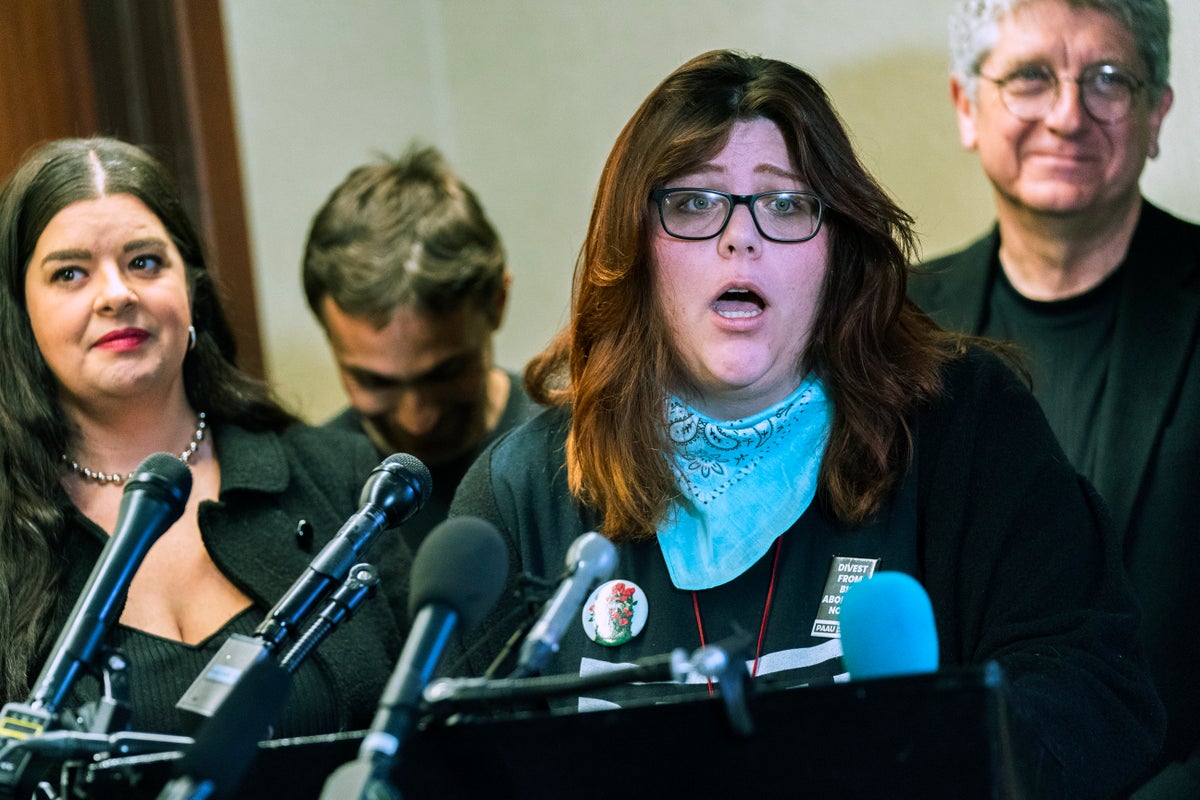
Anti-abortion activist Lauren Handy was convicted of illegally blocking a reproductive health clinic in Washington, DC after she kept five foetuses in her home.
Handy and five other defendants were accused of violating the Freedom of Access to Clinic Entrances Act (FACE Act) — which prohibits intimidation or obstruction of someone seeking reproductive health services — when they blocked access to the Washington Surgi-Clinic in October 2020 using chains and ropes, according to a Justice Department release.
A US District Court jury in DC found Handy and four co-defendants —John Hinshaw, Heather Idoni, William Goodman, Herb Geraghty — guilty on all counts. Each defendant was convicted of a felony conspiracy against rights and a FACE Act offence, the release stated, specifying that each face up to a maximum of 11 years in prison and a fine of up to $350,000.
The Washington Post noted that a second group of defendants involved in the same blockade have a trial that is set to begin next week.
The Justice Department wrote that Handy, Hinshaw, Idoni, Goodman, and Geraghty engaged in the conspiracy when they came from all over the country to Washington, DC “to meet with Handy and participate in a clinic blockade that was directed by Handy and was broadcast on Facebook.”
Prosecutors said that Handy called the clinic while under the guise of a prospective patient to book an appointment to figure out when the clinic performed abortions — in order to plan when she and others could arrive to stop patients from getting inside.
The Justice Department wrote that Handy, Hinshaw, Idoni, and Goodman “forcefully entered the clinic and set about blockading two clinic doors using their bodies, furniture, chains and ropes.” That’s when they began livestreaming their blockade.
Lauren Handy and four others were convicted on federal charges after blocking an abortion clinic in DC last year— (Copyright 2022 The Associated Press. All rights reserved.)
In terms of violating the FACE Act, the Justice Department wrote that the defendants used “physical obstruction to injure, intimidate and interfere” with the clinic’s employees as well as a patient who was seeking reproductive health services.
“They planned their crime carefully, to take over that clinic, block access to reproductive services and interfere with others’ rights,” Assistant US Attorney John Crabb said last week. “The idea of deliberately breaking the law, to them, was sexy.”
The group responsible for the blockade were reportedly members of Progressive Anti-Abortion Uprising (PAAU); Handy is the director of activism. The group’s website says its mission is to “achieve socio-political justice for the preborn by mobilizing anti-abortion activists for direct action and opposing elective abortion through a progressive lens.”
PAAU wrote on X in the wake of the verdict: “This is a gross miscarriage of justice, and while this is painful for all of those who understand that the unborn have a right to be Rescued, this is not the end!”
The group added, “Rescue CANNOT and will not be stopped. This case was an effort by the US government to isolate and intimidate Rescuers and anti abortion people into believing they will face significant jail time for living in alignment with their pro-life values.”
The case was brought against Handy and the other defendants in February 2022; one month later, police found five fetuses in a house in Southeast Washington where she was staying.
Metropolitan Police Department spokesperson said at the time that officers were investigating a tip regarding “potential bio-hazard material” at a property in Capitol Hill, adding later that they located “five fetuses inside a residence at the location.”
Shortly after that news broke, PAAU held a press conference announcing that Handy had 115 more foetuses that she helped baptise and bury in a private cemetery.
Handy said at the press conference, “During the five days they were under my stewardship, the 115 victims of abortion violence were given funeral mass for unbaptised children and 110… were given a proper burial in a private cemetery.”







